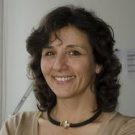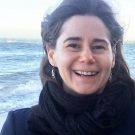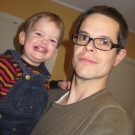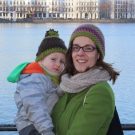Dr. Natalie Loick Wilde is head of the research group Aquatic Food Webs at the Leibniz Institute for Baltic Sea Research Warnemünde in Rostock (tenure-track). Her group uses amino acid nitrogen stable isotope approaches to elucidate how food webs regulate the matter turnover in aquatic systems. What inspire you to pursue a career in marine […]
Sharing the caring: professor for interactive media Franziska Uhing
Your career. Magister degree; a research project in media education (2 years); own business; PhD-grant, combined with teaching job in Kiel University of Applied Sciences; Professorship at Kiel University of Applied Sciences. Please describe briefly your family commitments. I have 2 children (11 and 8 years old). They are educated by me and assisted by […]
Being a female scientist: marine biologist and computer scientist Laura Uusitalo
Dr. Laura Uusitalo works as a Head of Unit and Senior Research Scientist at the Finnish Environment Institute. She’s interested in marine food webs and modern intelligent data analysis methods. Dr. Laura Uusitalo. Photo: Jari Juslin What did inspire you to pursue a career in marine sciences/technologies? When I was a teenager, I wanted, for […]
“WORK AND FAMILY: SHARING THE CARING”- marine biologist Anke Kremp
What is the nature of your work? I am a marine biologist and phytoplankton ecologist doing independent research at the Finnish Environment Institute. As a Senior Research Scientist, I lead a research group and manage and coordinate different research projects. Together with interns, Master’s and PhD students, post-docs and project scientists I perform experiments and […]
Being a female engineer: research vessel electronic engineer Cathi Hebold
Meet Cathi Hebold, the woman who works as an electronic engineer on the German research vessel METEOR. What inspired you to pursue a career in marine sciences/technologies? When working on my bachelor’s thesis, I found out that electronics engineers also worked on German research vessels. As my father and husband are also sailors, I had […]
Sharing the caring: Senior Lecturer Sebastian Sobek
Nature of your work. Senior Lecturer at Uppsala University. Research and teaching. Leading a research team of about 10 persons, and supervising their work. Administration. Career as a researcher. 2005 PhD in Sweden (Uppsala University). 2006-2009 Post-doc in Switzerland (Swiss Federal Institute of Technology (ETH Zurich), and Swiss Federal Institute of Aquatic Science and Technology […]
Being a female scientist: aquatic ecologist and wildlife photographer Zita Rasuole Gasiunaite
Prof. Zita Rasuole Gasiunaite is the head and lead scientist of the laboratory of Marine Ecosystems of Open Access Centre for Marine Research and a professor at the Department of Natural Sciences of Klaipeda University in Lithuania. At the same time she is a professional wildlife photographer and amateur rider. What inspired you to […]
“Work and Family: sharing the caring”- postdoctoral scientist Lisa Neef
Nature of her work. Dr. Lisa Neef is a post-doctoral scientist in a research group that specializes in disentangling natural climate variations from the effects anthropogenic global warming at GEOMAR Helmholtz Centre for Ocean Research. Her work, in particular, focuses on climate simulations that are constrained by observed data, that is, simulations where the wind, […]
Being a female scientist: polar marine biologist Iris Werner
Dr. Iris Werner is the central equal opportunities commissioner of Kiel University and head of the central Office for Gender Equality, Diversity and Family. Being a marine biologist by education, she worked more than 20 years in marine and polar ecological research before changing to science management in 2008. What are the main things you […]
Being a female scientist: seagoing oceanographer Joanna J. Waniek
Prof. Joanna J. Waniek is a professor for bio-physical interactions in marine ecosystems at the University of Rostock and at the Institute for Baltic Sea Research in Warnemünde (IOW), Germany where she leads her own working group. She is a sea going scientist, with 25 years of work experience. Since 2013 she is the equal […]



